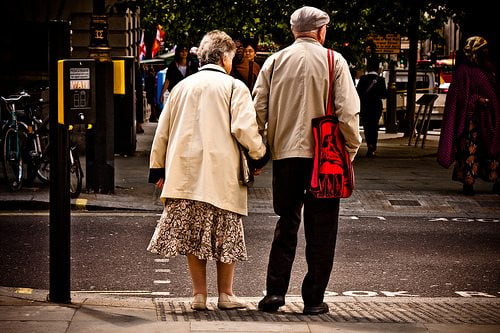

Features
Free Elderly Care Homes, Anyone?!
Would you sacrifice your freedom to spend your old age in prison? Somewhat ironically, there are some elderly Japanese who would answer: “Yes please!” The elderly criminal phenomenon in Japan may be absurd to some but you could feel sorry for these elderly inmates once you know their circumstances.
This article was originally published on WHEB Insights Blog.
It is difficult for these elderly ex-convicts to find a place in nursing homes after their release as they need to compete with 520,000 other elderly Japanese on waiting lists. The lack of adequate care and social support give little choice to these elderly inmates but to commit crime again and again just to get the food and care they need behind bars. Prisons basically become their nursing homes. While this elderly criminal phenomenon may be only restricted to Japan, the ageing populations, in both the developed and the developing world, create huge social and financial challenges to societies and governments on a global basis.
Older people are particularly vulnerable to social isolation and physical immobility. Without adequate care and social support, the impact of social isolation and physical immobility on their wellbeing has significant cost implications for health and social care services. As people age, the need for assistance grows dramatically. 7% of the elderly in the US aged between 65 and 74 need assistance for daily activities. The percentage increases considerably to 40% for the people aged 85 or above. This growing demand for elderly care creates a huge burden on the government healthcare spending. In the US, 75% of Americans aged 65 or above have multiple chronic conditions and they account for 72% of doctor visits and 88% of all prescriptions.
The solutions to this chronic care challenge are to provide right care at the right time. There are various elderly care solutions including home care, independent living, assisted living and nursing homes. They provide various level of care at different cost levels. Home care is regarded as one of the most cost effective ways to provide elderly care. For example, Amedisys claims that home care in the US can potentially prevent 34,665 re-hospitalisations and save $4.88 billion for Medicare. Unfortunately, home care is not suitable for everyone and home care providers have sometimes been associated with fraudulent reimbursement claims. We currently have no exposure to home care at present, partly because of our concerns over their corporate governance standards.
We are a long-term investor in Orpea, which is a European leader in elderly care with 58,334 beds across 600 facilities. Orpea is well positioned to benefit from the ageing population in Europe where the number of people aged 80 or above will double by 2050 Based on its current pipeline, it is going to build 9,101 additional beds in the next few years to help meet this growing demand. Orpea benefits from the limited investment capacity of public sector and non-profit organisations due to the sluggish economies in Europe. At the same time, it is trying to consolidate the highly fragmented private sector.
With the global number of centenarians projected to increase 10-fold between 2010 and 2050, we all need to plan in advance how we are going to pay for the care we will need in our old age. Elderly care homes in the UK now cost an average of £28,500 per year, or £37,500 per year if nursing is required. While the median annual income for full-time employees is only £27,200, prisons may be the only option for some to spend their old age! I heard that Halden, Norway has the most humane prison in the world!
Photo: Garry Knight via Flickr
Further reading:


 Environment12 months ago
Environment12 months agoAre Polymer Banknotes: an Eco-Friendly Trend or a Groundswell?

 Features11 months ago
Features11 months agoEco-Friendly Cryptocurrencies: Sustainable Investment Choices

 Features12 months ago
Features12 months agoEco-Friendly Crypto Traders Must Find the Right Exchange

 Energy11 months ago
Energy11 months agoThe Growing Role of Solar Panels in Ireland’s Energy Future


















